Few drivers in the history of Formula 1 have been as enigmatic as Fernando Alonso, as he now prepares for his sixth new team and 21st season at the top level, with Aston Martin.
Later this year at the Austrian Grand Prix, he is set to mark the 365th race start of his F1 career, meaning he will have spent an entire year of his life driving in Grands Prix alone, not counting sessions such as practice, qualifying or the countless hours of pre-season testing.
With a two-year deal from Aston firmly in his back pocket, he will smash through the 400 Grand Prix barrier sometime late in 2024 – an astonishing mark for a driver who has lost none of his competitive juices.
Even Old Father Time – which gets every athlete in the end – is stumped, scratching his head about how to defeat this particular rival who is set to race a driver in Oscar Piastri who wasn't even born when he made his debut back at the 2001 Australian Grand Prix.
But, despite his relentlessness, Alonso has formed a reputation as a canny political operator who can be difficult to work with unless his high, demanding standards are met.
And when it goes wrong, it really goes wrong - see the 2015 Japanese Grand Prix and the infamous "GP2 engine" comment at Honda's home race no less, as Exhibit A.
During his long career, Alonso has worked with an array of team bosses, with Mike Krack at Aston Martin set to be the latest one.
Could he be the man to break the Alonso 'curse'?
Minardi and Renault
Alonso's first boss in F1 was Paul Stoddart at the tiny Minardi squad in 2001.
It was a cordial experience as he thumped teammate Tarso Marques, although the Brazilian would actually finish higher in the championship thanks to his ninth place finish at home compared to Alonso's best of 10th in Germany, with points only going to the top six in those days.
The Minardi ride was arranged by Flavio Briatore, who signed the 19-year-old Alonso after a crushing drive in the F3000 race at Spa in 2000.
After the year at Minardi, Briatore – who was looking for a new star to lead the second coming of the Enstone project following the Michael Schumacher-Benetton heydays of the mid-1990s – selected the young Spaniard for the main Renault team and promptly stuck him on testing duties in 2002.
This incubation period proved a masterstroke as Alonso was handed the full-time drive in 2003 and, with Briatore, would end the Jean Todt/Schumacher dominance in 2005 and defend their titles in 2006.
McLaren - Dennis and Whitmarsh
On paper, it should have worked. In practice, it did for about four races.
Pairing double World Champion Fernando Alonso in a works Mercedes-powered McLaren with rookie Lewis Hamilton and Ron Dennis overseeing operations should have been Nirvana for the team.
Instead it turned into a nightmare, one where the shockwaves are still felt on the F1 grid to this day 16 years on.
In Monaco, a racy Hamilton was ordered to stay behind his team leader and bank a straight-forward 1-2 finish, something the Briton was furious at as Dennis sought to reassure Alonso after the race that he had called the fight off for the benefit of the team.
Alonso took this the wrong way and believed Dennis was not giving him the number one status he felt he deserved as reigning champion.
Tensions boiled over in Hungary as Hamilton refused to cede position during qualifying, which led to the senior driver famously blocking his teammate in the pits just long enough so he couldn't set a final lap time. Alonso started his with seconds remaining...
Bubbling away in the background was Spy-gate, with Alonso threatening to send information to the FIA in a meeting with Dennis and his number two, Martin Whitmarsh, on Sunday morning in Budapest.
Needless to say, it was an increasingly untenable situation, with McLaren fined $100 million by the FIA and booted out of a Constructors' Championship they would have otherwise won by nine points from Ferrari.
The Drivers' crown was also lost as McLaren tried to engineer a Hamilton title in the closing rounds, knowing the multi-year contract with Alonso was being ripped up.
They ended up with nothing as Ferrari's Kimi Raikkonen pipped the pair of them to the championship by one point in the finale.
Dennis too would be out a little over a year later, having guided Hamilton to the title at the second attempt in 2008, handing over to long-time lieutenant Whitmarsh.
Back to Renault
However, after his return to Renault following the McLaren year, the team were embroiled in a scandal never seen in F1, with Briatore allegedly at its heart.
After being sacked in 2009, Nelson Piquet Jr claimed that he had been ordered to deliberately crash during the 2008 Singapore Grand Prix, which was won by Alonso after he was helped by a fortuitously timed Safety Car – the one Piquet had triggered with his Turn 17 crash.
The FIA and then-President Max Mosley launched an immediate investigation which found Briatore knew of the plan, as did director Pat Symonds. After interviews with Scotland Yard detectives, it was found Alonso had no knowledge of the plan.
Briatore and Symonds were subsequently banned from motorsport by the FIA, having both resigned their positions.
On appeal, Briatore's indefinite ban and Symonds' lengthy one were overturned and reduced, respectively, with the latter returning to F1 with Williams in 2013 and now holding the role of Chief Technical Officer at F1 itself.
Briatore and Alonso are still close.
Fernando Alonso team bosses
| Team | Boss | What happened to them? |
|---|---|---|
| Minardi - 2001 | Paul Stoddart | Stayed in post |
| Renault - 2002-06 | Flavio Briatore | Stayed in post |
| McLaren - 2007 | Ron Dennis | Resigned in 2009 following fall-out from spy-gate |
| Renault - 2008-09 | Flavio Briatore | Resigned and banned after crash-gate |
| Ferrari - 2010-14 | Stefano Domenicali | Resigned after poor start to 2014 |
| Ferrari - 2014 | Marco Mattiacci | Replaced after 2014 |
| McLaren - 2015-17 | Ron Dennis (Group CEO) | Ousted following return and Honda debacle in 2017 |
| McLaren - 2015-18 | Eric Boullier (Racing Director) | Resigned mid-2018 |
| McLaren - 2016 | Jost Capito - (McLaren Racing CEO) | Parted company after Dennis's ousting |
| Toyota (WEC) 2018-19 | Pascal Vasselon | Still in post despite Alonso wanting him out |
| McLaren (IndyCar) - 2019 | Bob Fernley | Left at end of contract following poor performance |
| Renault - 2020 | Cyril Abiteboul | Resigned before Alonso joined |
| Alpine - 2022 | Otmar Szafnauer | Still in post |
| Aston Martin - 2023 | Mike Krack | Still in post |
Domenicali and Mattiacci - The Ferrari Years
Two near misses in three years and generally sub-standard machinery at Ferrari tested Alonso's patience at the Scuderia during his stay between 2010 and 2014.
After badly fumbling the turbo hybrid formula in 2014, Stefano Domenicali (he now of F1 CEO fame) resigned, taking responsibility for the failure of the F14-T.
In his place came Marco Mattiacci, head of Ferrari sales in North America in one of the weirder F1 team boss moves.
Relations were bad between the two, with Mattiacci eventually getting the upper hand by effectively forcing Alonso out by signing Sebastian Vettel as Alonso tried to engineer a Mercedes move for 2015 – but due to the fall out from Spy-gate and the fine needing to be paid, that was never going to happen.
The second time around at McLaren
Come 2015, Alonso was back at McLaren as was Dennis – freshly armed with Honda engines – having returned as CEO, with Eric Boullier now running the team on a day-to-day basis.
This was the era of McLaren entering their nadir as the three-year Honda partnership proved disastrous, with Alonso so disillusioned about the situation that he successfully agitated for a switch to Renault power units for 2018.
Dennis would not see the Honda years out, ousted in a boardroom struggle in mid-2017 with Zak Brown promoted in 2018 to fill the vacant CEO position at McLaren Racing.
Also out with Dennis went Jost Capito - the former being responsible for signing the ex-director of Volkswagen motorsport.
Capito was in post for about three months, with McLaren's statement confirming his departure saying that "common ground" could not be found between the two parties.
Shortly after Brown's appointment, Boullier himself left his position as Racing Director as Alonso exited F1 at the end of the year, citing his frustration with Grand Prix racing.
Sportscars and the Indy 500
Throughout 2018, Alonso had dovetailed his final year with McLaren by taking part in the World Endurance Championship, including a win at Le Mans the week before the French Grand Prix at Paul Ricard.
Pascal Vasselon ran the Toyota LMP1 programme, with Alonso a member of the #8 crew alongside Sebastien Buemi and Kazuki Nakajima which claimed the 2018-19 'super-season' title, with a second 24 Hours victory in 2019.
RacingNews365.com understands that Alonso requested Vasselon be removed from his post, which was promptly rejected as he was told: 'Thanks, but no thanks, and there's the door.'
This also extended to the Dakar Rally programme Alonso took on during his break from F1 - with a 13th place overall finish in 2020 in the event for Toyota. He hasn't tackled it since.
Having ticked Le Mans off the 'Triple Crown' list, Alonso then fully focused on his attempts to win the Indy 500 in 2019 – two years after his guest appearance in an Andretti Autosport machine.
Former Force India boss Bob Fernley was drafted in by McLaren to oversee the project, but as a catalogue of errors played out, Alonso was 'bumped' from the field in qualifying by the tiny Juncos Racing squad and driver Kyle Kaiser.
Fernley's contract officially ended after the Month of May at the Brickyard that year, so he was not kept on as McLaren headed back to IndyCar with the Schmidt Peterson team.
Return of the Jedi - Renault for a third time
After realising that he missed F1, Alonso searched for a vacant seat and was quids in when Daniel Ricciardo decided to leave Renault, meaning they needed a driver for 2021.
Alonso's third coming was announced in July 2020, just after the delayed season-opener in Austria, with Cyril Abiteboul the man to close the deal.
Over the off-season, Renault were re-named Alpine and Abiteboul was forced out even before the season had started.
Otmar Szafnauer was eventually recruited as the Team Principal in early 2022, following a year in 2021 with a 'no-boss' structure.
It was Szafnauer who was left in the lurch when Alonso announced he was off to Aston Martin the day after the 2022 Hungarian Grand Prix, leading to Piastri being declared his replacement before he publicly rejected the deal, having already signed with McLaren.
RacingNews365.com would later exclusively reveal the multiple failings on Alpine's behalf in handling Piastri's contract.
Mike Krack and Aston Martin
The man who replaced Szafnauer is Mike Krack, who is likely to be the final team boss Alonso works with in F1 as even the great Spaniard can't put off retirement indefinitely.
Shortly before Alonso drove for Aston for the first time in the post-Abu Dhabi Grand Prix test at the end of the 2022 season, RacingNews365.com spoke with Krack and asked him directly about the Alonso 'curse'.
"I hope I do not have the same as the people at Toyota had," he joked.
"Obviously there is a reputation but I try to leave it on the side, and we will have a fresh approach.
"Maybe I am different to other Team Principals and maybe he is a different driver, but I would be surprised if we had problems.
"We've always found a way to find solutions, and this was by being transparent and honest.
"You have to anticipate what the issues will be with a driver, and drivers become upset if they feel disrespected or undervalued or that we do not tell them the truth.
"If you can avoid that, then it is not a difficult task."
Krack is confident that he can handle the Alonso 'curse' and create an environment that will allow him to thrive and extract every minuscule of performance from the AMR23 machine.
In typical Alonso fashion, once the racing for real starts, we will know sooner rather than later how this chapter with Aston Martin will pan out.
Keen observers will also note that Whitmarsh is now Group CEO of Aston Martin Performance Technologies, with responsibility for the F1 operation, while Mattiacci is chief global brand and communications officer, although this is on the Aston Martin Lagonda side, not the racing arm.
Also interesting:
Revealed: 2023 F1 driver salaries
How much money will F1's class of 2023 take home with them? It's easy to assume that the likes of Lewis Hamilton, Max Verstappen and Charles Leclerc are the sport's biggest earners, find out which F1 stars take home the biggest pay cheques:
Check out the video below:
Don't miss out on any of the Formula 1 action thanks to this handy 2026 F1 calendar that can be easily loaded into your smartphone or PC.
Download the calenderMost read
In this article
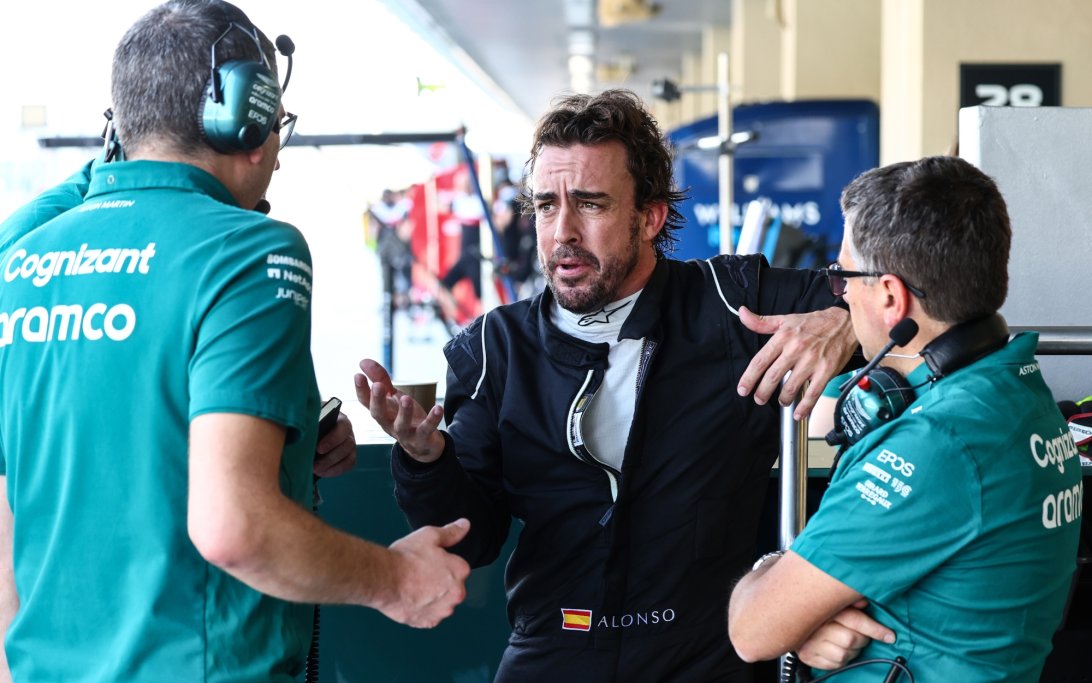
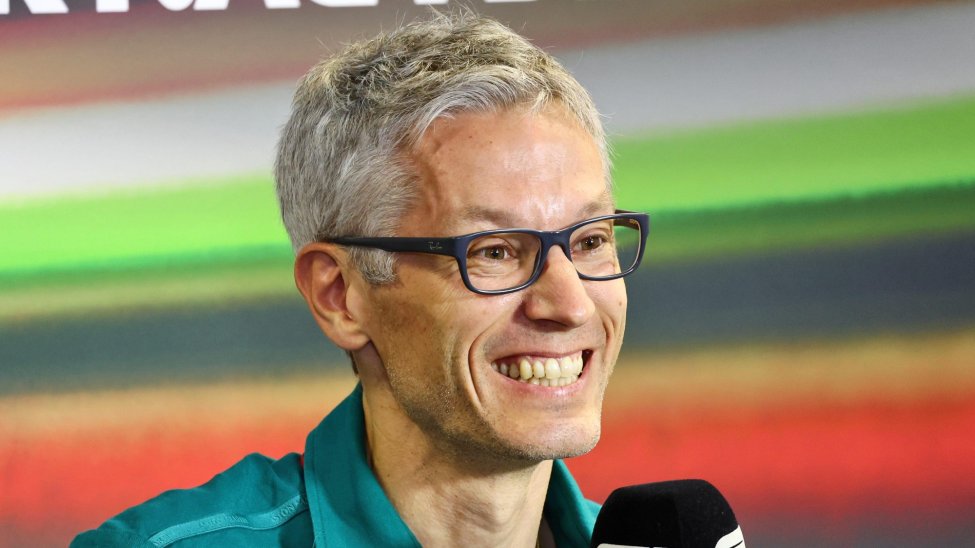
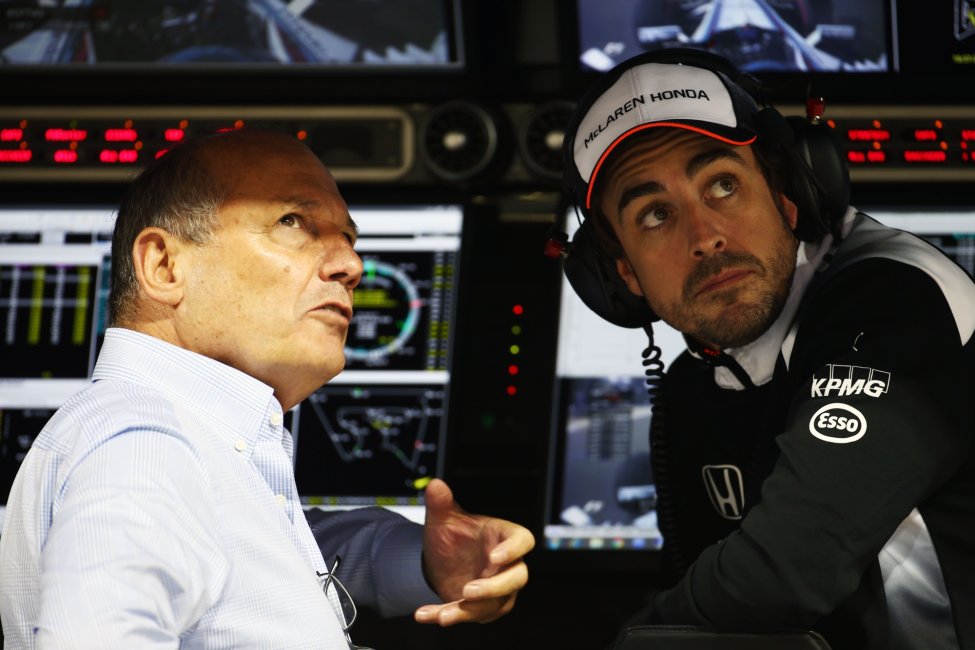
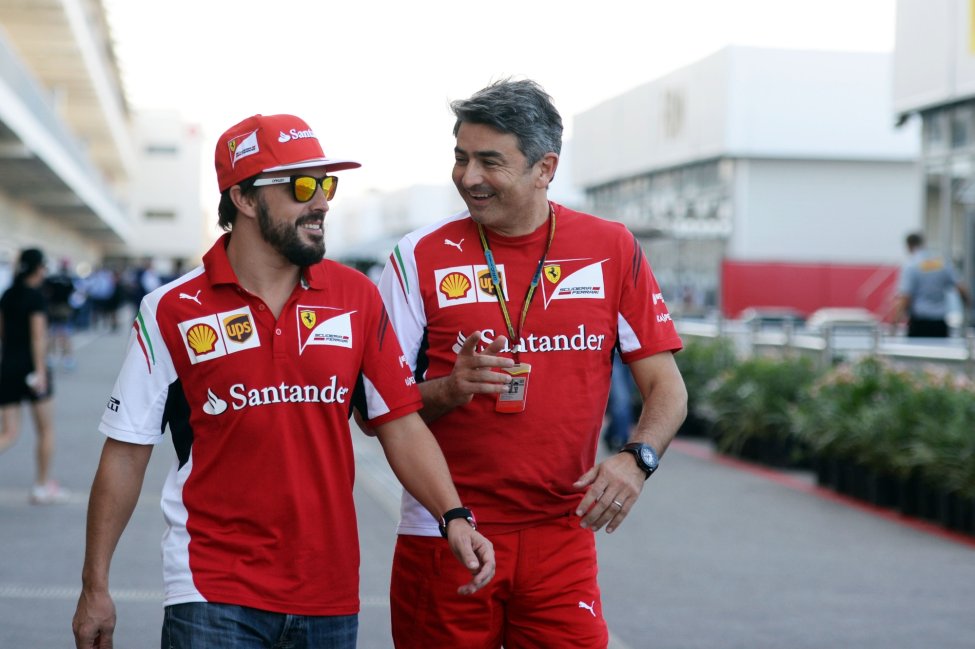
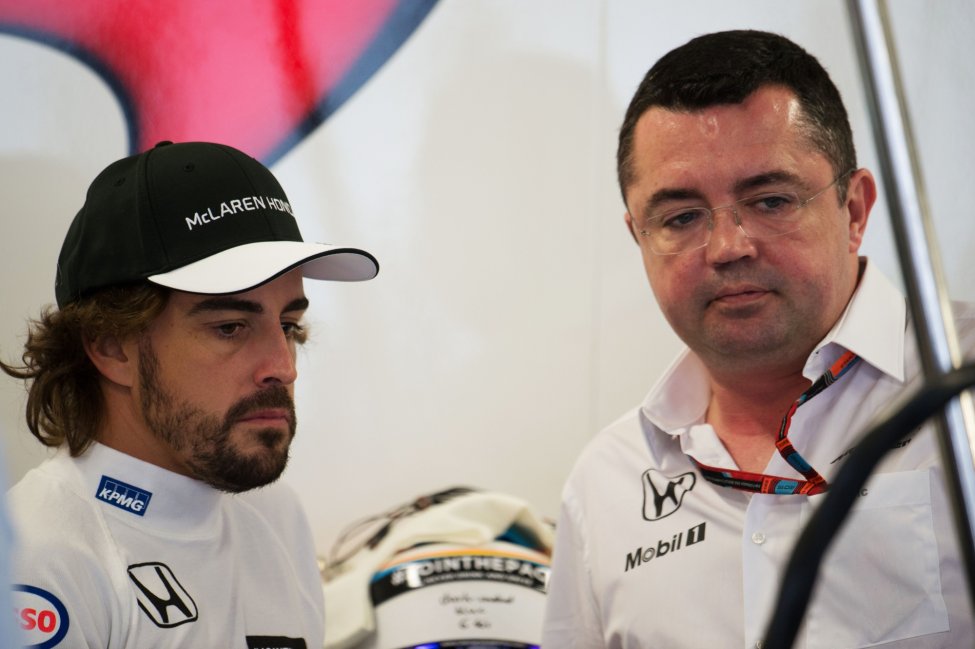
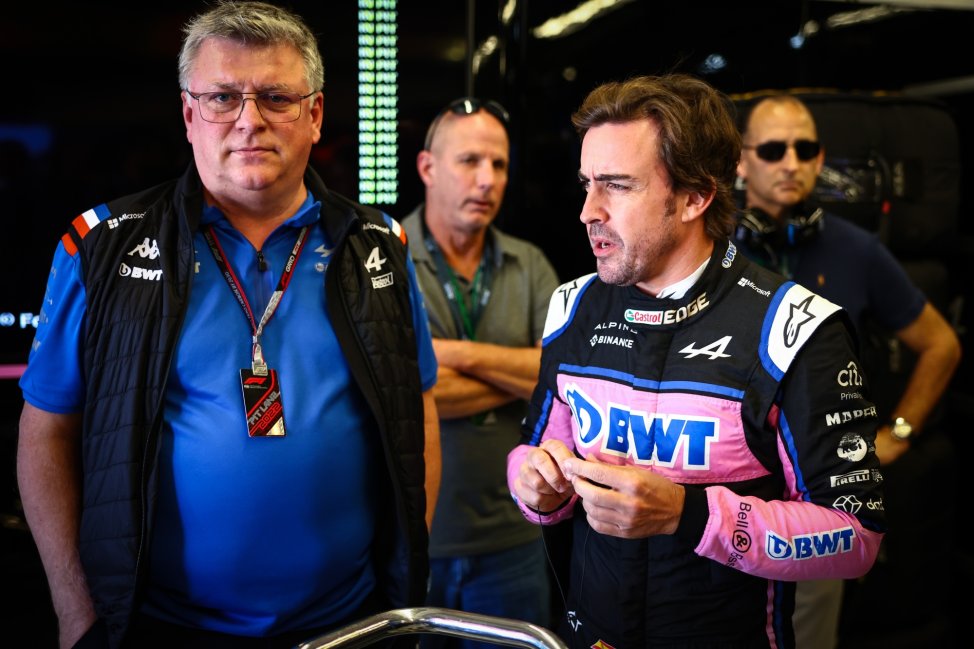
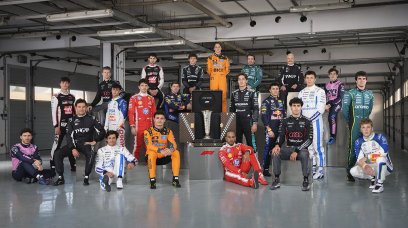
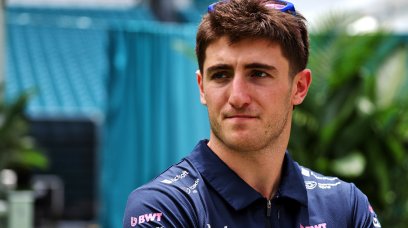
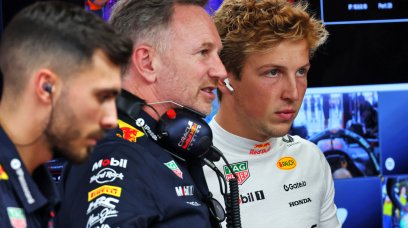
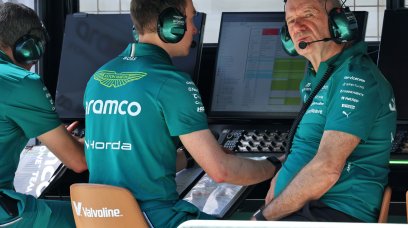
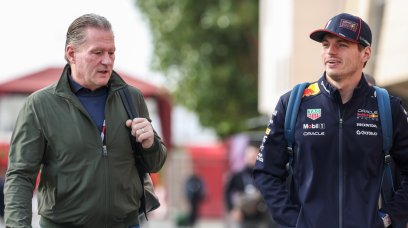
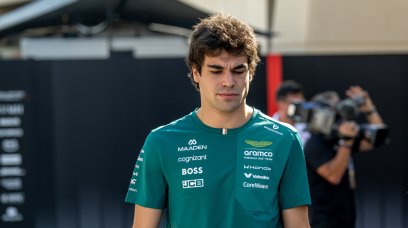
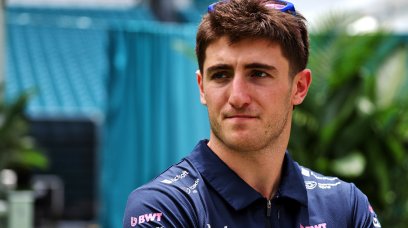
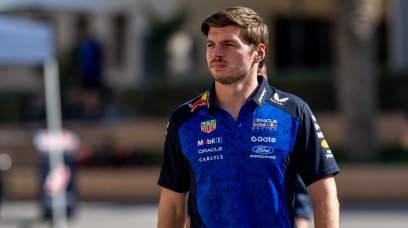
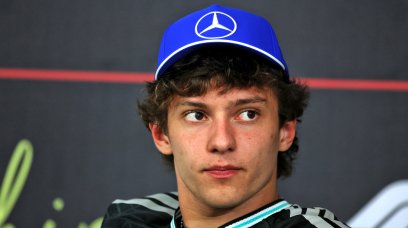
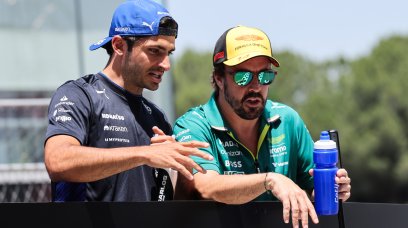
Join the conversation!